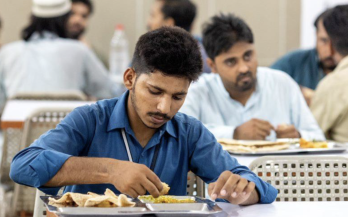- 22/04/2024
In a perfect world, functional food systems would provide multiple benefits for everyone, including healthy diets, environmental sustainability, and improved livelihoods . Unfortunately, we live in a far from perfect world. Over three billion people cannot afford a healthy diet, some 735 million people face hunger, and obesity rates are on the rise .
- 22/04/2024
As countries develop their National Pathways for food systems transformation, one emerging need is to
ensure policies land at different levels. A truly effective ‘national’ policy must span all sub-national areas.
- 07/03/2024
The ‘Pakistan Food Systems Dashboard’ is an initiative that bridges this gap through credible national, city, and district data across a range of key food systems indicators.
- 12/02/2024
The Kenya Food Systems Dashboard, unveiled in February 2024 and managed by the Ministry of Agriculture and Livestock Development, brings together much-needed data to support this food systems transformation. It includes an overview of Kenya’s food system, offering valuable insights into both opportunities and challenges.
- 12/02/2024
This brief describes how and why we take the approach we do at both national and global levels, including key features of the way we work.
- 17/01/2024
To better understand the primary pathways through which gender norms impact children’s diets, this scoping review examines recent literature on gender issues related to child feeding in LMICs. It seeks to identify trends that occur within specific populations and cross-culturally. The findings will support increased gender sensitivity across GAIN programmes.
- 13/12/2023
Food systems are a foundation of human and planetary well-being and central to achieving the Sustainable Development Goals. Yet they also contribute to ill health, inequity, environmental degradation, and greenhouse gas emissions. These challenges demand urgent food systems transformation. Such a transformation requires understanding the status of food systems across their diverse functions.
- 30/11/2023
The objective of this working paper is to reflect on current programmatic approaches that aim to improve access to and demand for healthier diets via employer delivery mechanisms in factory settings.
- 30/11/2023
The objective of this working paper is to reflect on current programmatic approaches that aim to improve access and demand for nutritious foods via employer delivery mechanisms in farm settings.
- 28/11/2023
A strategy to catalyse a global food systems transformation for people, planet and prosperity using cities as entry points.









